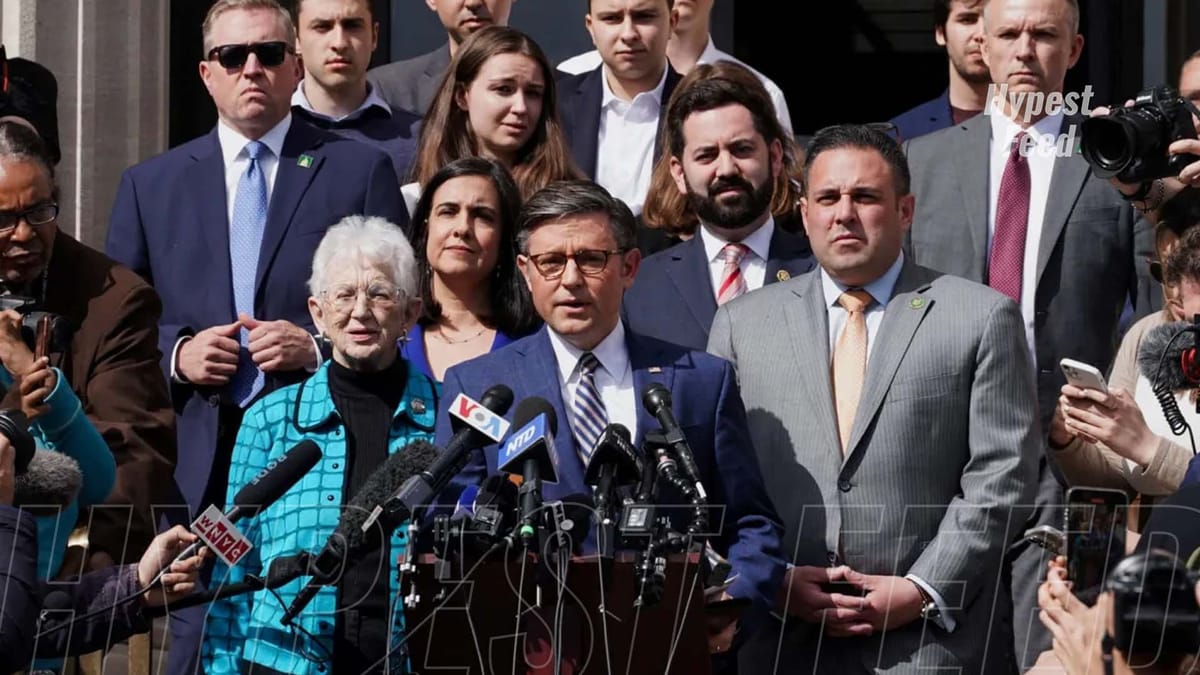Republican House Speaker Mike Johnson faced heckling during a visit to Columbia University amidst escalating protests against the Gaza conflict spreading across US campuses. Johnson criticized Columbia officials, urging President Nemat Shafik's resignation over the perceived loss of control and alleged police actions against pro-Palestinian demonstrators. Alongside Republican lawmakers, Johnson condemned the protests as unlawful, emphasizing concerns about antisemitism and the university's failure to safeguard Jewish students. Despite heckling from protesters, Johnson called for a return to order and hinted at the possibility of deploying National Guard troops, although Governor Kathy Hochul stated otherwise. The Ivy League university grapples with ongoing negotiations with protesters over encampment size, following police arrests and subsequent demonstrations. Amid safety concerns, students have been granted the option to attend classes online.
Amidst ongoing protests at Columbia University, demonstrators vow to persist until their demands are met. Page Fortna, a Columbia political science professor, acknowledged objectionable incidents during the protests but refuted claims of widespread antisemitism. She highlighted a discrepancy between the conversation outside the campus gates and the reality on campus. Demonstrators argue that accusations of harassment against Jewish students are exaggerated and rare, with claims of "outside agitators" fueling unrest, according to New York police and school officials.
Outside the campus, a masked protester spewed antisemitic slurs, drawing condemnation from camp supporters who disavowed such behavior. Jewish students voiced concerns about the threatening environment on campus, with some reporting verbal and physical attacks. Israeli student Guy Sela recounted facing derogatory remarks like "murderer" and "rapist" due to his nationality. Others, like master's student Jonathan Swill, expressed plans to leave Columbia due to discomfort and fear.
Protests against Israel's actions in Gaza have sparked nationwide demonstrations, including clashes with police at various universities:
- At the University of Texas, police dispersed protesters and made arrests.
- Similar confrontations occurred at the University of Southern California, leading to restricted campus access.
- Ohio State University witnessed arrests following a protest.
- Harvard University saw the establishment of a camp despite attempts to prevent it, mirroring camps at other Boston-area universities.
- University of California, Berkeley, allowed a camp in Sproul Plaza, provided it didn't disrupt university operations.
- Other universities, including the New School in Florida, the University of Michigan, and the University of Rochester, reported protest camps.



Member discussion: